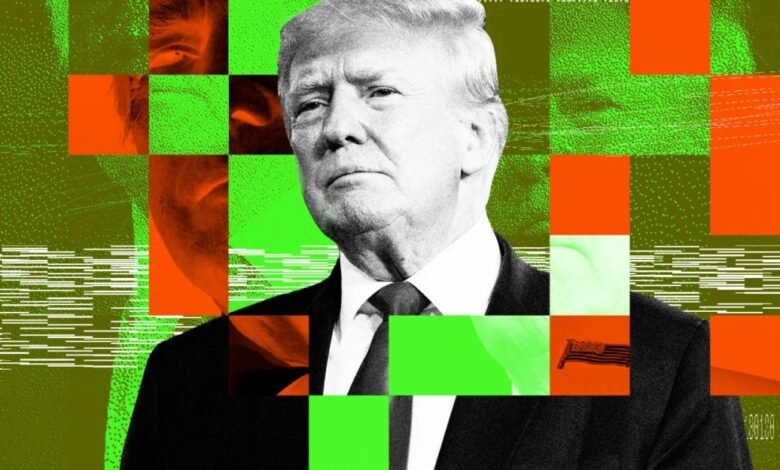Tech Giants Fund Trump-Linked Nonprofits

▼ Summary
– America 250, a nonprofit organizing the 250th Independence Day celebrations, is soliciting corporate sponsors including major film studios that have pending mergers requiring Trump administration approval.
– YouTube settled a $24.5 million lawsuit with Trump and MAGA allies over channel suspensions, despite private companies having legal authority to moderate content on their platforms.
– Google faces existential threats from ongoing DOJ antitrust cases targeting its search and ad tech monopolies, with a current remedies trial potentially forcing asset sales.
– Tech companies are learning that currying favor with Trump through financial contributions to his vanity projects, like the White House ballroom fund, may help avoid regulatory actions.
– Despite administration changes, the DOJ’s antitrust arguments against Google have remained consistent, with ongoing threats of additional investigations from anti-Big Tech officials.
Major technology corporations are increasingly directing financial support toward nonprofit organizations with connections to former President Donald Trump, raising questions about the intersection of political influence and corporate strategy. This trend coincides with ongoing antitrust battles and regulatory scrutiny facing several of these same companies, suggesting a potential alignment of interests in the current political climate.
During a recent visit to Washington D.C., the America 250 headquarters prominently displayed logos from entertainment giants including Netflix, Amazon MGM Studios, Disney, Paramount, Sony, and Universal Studios. This nonprofit, established by Congress to coordinate the nation’s 250th anniversary celebrations, previously attracted attention for soliciting funds from the cryptocurrency sector to support a military parade proposed during Trump’s presidency. Notably, at least three of these media corporations currently have merger proposals awaiting approval from Trump administration regulators.
This observation occurred alongside reporting on YouTube’s $24.5 million settlement of a lawsuit filed by Trump and political allies alleging First Amendment violations. While private platforms typically retain content moderation authority, the political landscape shifted dramatically following Trump’s return to power. His administration oversees two significant Department of Justice antitrust cases against Google, YouTube’s parent company, which could potentially force divestiture of key business units including its advertising technology exchange.
Industry observers note that technology firms appear to be adopting strategies long understood within Trump’s political orbit: cultivating favor with the administration represents a potential safeguard against regulatory actions. The current executive branch includes numerous officials with documented skepticism toward major technology platforms, creating persistent uncertainty for companies like Google even beyond current litigation.
The administration has demonstrated a pattern of directing legal settlement funds toward presidential priorities. Earlier this year, Trump designated millions obtained through lawsuits against Twitter and Meta for his presidential library development. According to attorney John P. Coale, who represented Trump in these cases, the president specifically requested the YouTube settlement support construction of a new 900-seat White House ballroom. The administration’s private fundraising campaign for this project has reportedly neared its $200 million target with remarkable speed, meaning YouTube’s settlement alone covered approximately 11% of the total cost.
Legal reporter Lauren Feiner, who has extensively covered the Google antitrust proceedings, notes the remarkable consistency in the government’s arguments despite the transition between administrations. “The search case fundamentally challenges Google’s core business,” Feiner explained, “while the advertising technology litigation addresses how the company allegedly used market dominance to maintain monopoly power.” Both cases present existential threats to Google’s business model, making substantial settlement payments potentially worthwhile from a risk management perspective.
The dynamic creates a scenario where multiple parties achieve short-term objectives: the administration secures funding for prestige projects, while technology companies potentially mitigate regulatory pressure and obtain tax benefits. However, the fundamental antitrust challenges continue progressing through the legal system, with final arguments in the advertising technology case scheduled for November.
Feiner observed that while corporate executives testified about harm from Google’s business practices, other technology leaders expressed interest in acquiring Google assets if they became available. “Obtaining any portion of Google represents significant value for competitors,” she noted, highlighting the engineering talent and established products that make the company an attractive target for potential acquisition.
The situation illustrates how corporate political engagement strategies have evolved in response to regulatory pressures, with financial contributions to administration-linked initiatives becoming an increasingly visible component of business-government relations.
(Source: The Verge)
